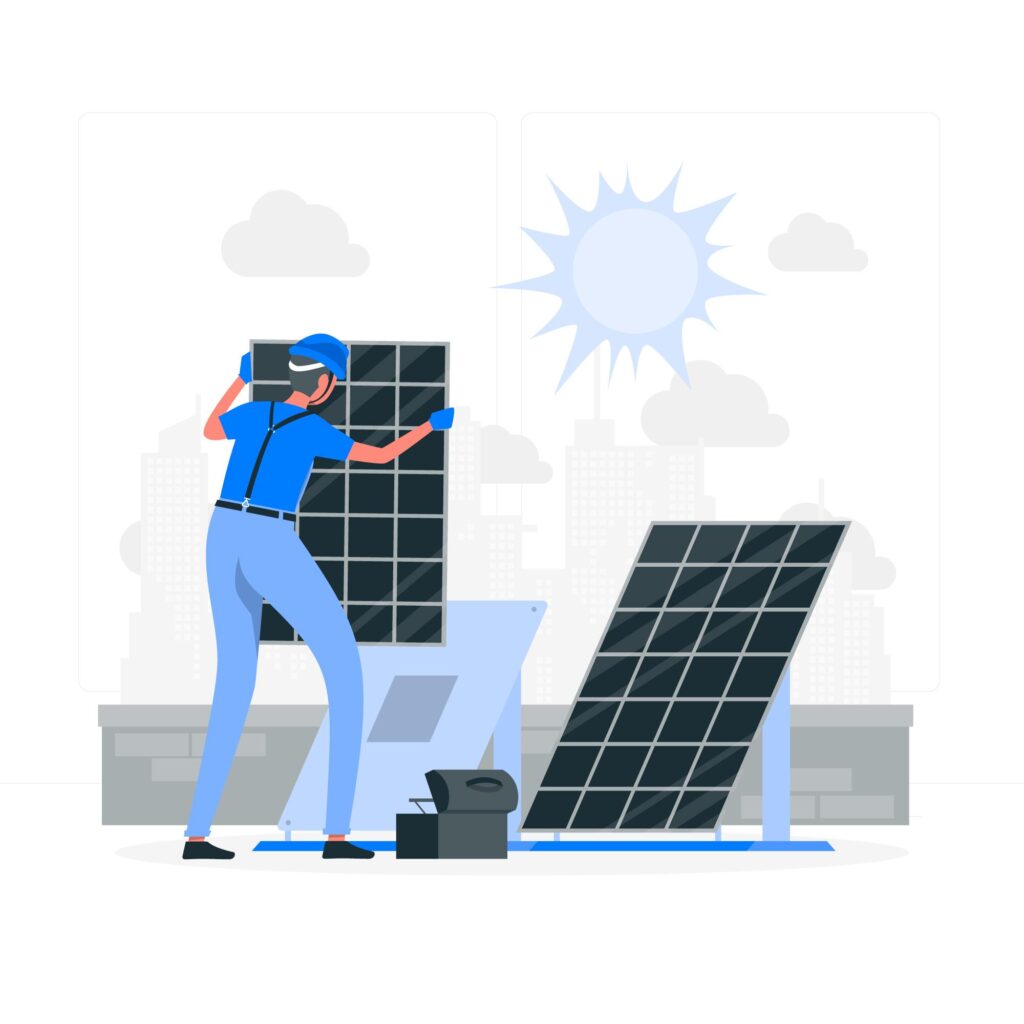Changing to solar energy is a great approach to help sustainability and lower power use. For many homes, though, the initial outlay for installing solar panels can be a major obstacle. Although solar energy is more easily available thanks to financing choices, wise decisions depend on knowing solar panel financing rates. Everything you need to know about solar financing rates—including how they work, what influences them, and how to get the best rates for your solar project—will be broken down in this post.
What Are Solar Panel Financing Rates?
Solar panel financing rates are the interest rates connected to loans or financing agreements applied to buy and install a solar energy system. These rates directly affect your monthly payments and the whole cost of the system over time as they define the borrowing cost.

Types of Solar Financing Options
Homeowners have a number of financing choices, each with corresponding rates:
1. Solar Loans
Solar loans let you borrow money required to buy your solar panels and pay them back over time. Solar installers, credit unions, and banks all grant these loans.
- Interest Rates: Usually based on your credit score and loan period, interest rates run from 3% to 8%.
2. Home Equity Loans and Lines of Credit (HELOC)
Another choice is funding your solar system from the equity of your house.
- Interest Rates: Usually lower, ranging from 2% to 5%, interest rates depend on the value of your house and credit record.
3. Solar Leases and PPAs (Power Purchase Agreements)
PPAs let you pay for the energy the system generates rather than own the system.
- Rates: Usually stated as fixed or variable monthly payments, rates are not expressed as interest rates.
Factors That Affect Solar Panel Financing Rates
Many elements affect the financing rates provided for solar systems:
1. Credit Score
Usually, a better credit score produces cheaper interest rates. Good credit holders are seen by lenders as less risk, which results in better conditions.
2. Loan Term
Usually with shorter loan durations comes cheaper interest rates but larger monthly payments. Longer durations could have slightly higher rates even if they help to distribute the cost.
3. Down Payment
Making a bigger down payment will help you to lower your financing rate since it lowers the lender’s risk.
4. Type of Loan
Generally speaking, secured loans—like home equity loans—have lower rates than unsecured loans.
5. Market Conditions
The whole interest rate environment can be influenced by economic conditions as well as Federal Reserve actions, therefore affecting solar financing rates.

How to Secure the Best Solar Panel Financing Rates
Getting the greatest rates calls for planning and investigation. Use these guidelines to raise your odds:
1. Check Your Credit Score
- Get a free credit report and go over it looking for mistakes.
- Pay off debt and schedule timely payments to raise your score.
2. Shop Around
- Review loan proposals from several lenders, including banks, credit unions, and solar firms.
- Don’t accept the first offer; investigate all your choices.
3. Choose the Right Loan Term
- Choose a term that balances a reduced interest rate with cost.
4. Leverage Incentives and Rebates
- Like the Investment Tax Credit (ITC), both federal and state solar incentives can lower the cost of your solar system and impact your financing requirements.
Benefits of Lower Financing Rates
1. Reduced Monthly Payments
Since lower rates translate into fewer monthly payments, solar energy becomes more reasonably priced.
2. Lower Total Cost
Over time, paying less interest helps your solar system to be generally less expensive.
3. Faster Payback Period
Reduced rates can help you more rapidly recover your investment via energy savings.
Common Questions About Solar Panel Financing Rates
Are fixed or variable rates better for solar loans?
Most homes want fixed rates since they are more predictable. Though they start lower, variable rates rise with time.
Can I refinance my solar loan?
Indeed, if your credit score or the state of the market improve, refinancing can help to guarantee a reduced interest rate.
What happens if I default on a solar loan?
Penalties, a poor credit score, and occasionally even solar system repossession might follow from defaulting.
Is Solar Financing Worth It?
Especially if the monthly savings on your power bill exceed the loan payments, financing your solar system might be a wise financial decision. Having a solar system from a reputable solar company like: Harbor Solar over time can boost the value of your house, lower energy costs, and have positive effects on the surroundings.
Final Thoughts
Anyone contemplating a solar energy system must first understand solar panel financing rates. Investigating your financing choices, looking for the best rates, and using the incentives at hand will help you to make solar energy a sustainable and reasonably priced alternative.
Spend some time assessing your choices and ensuring the financing schedule fits your long-term objectives and financial situation. Solar energy may be a smart investment that helps the earth as well as your pocketbook with the correct strategy.


